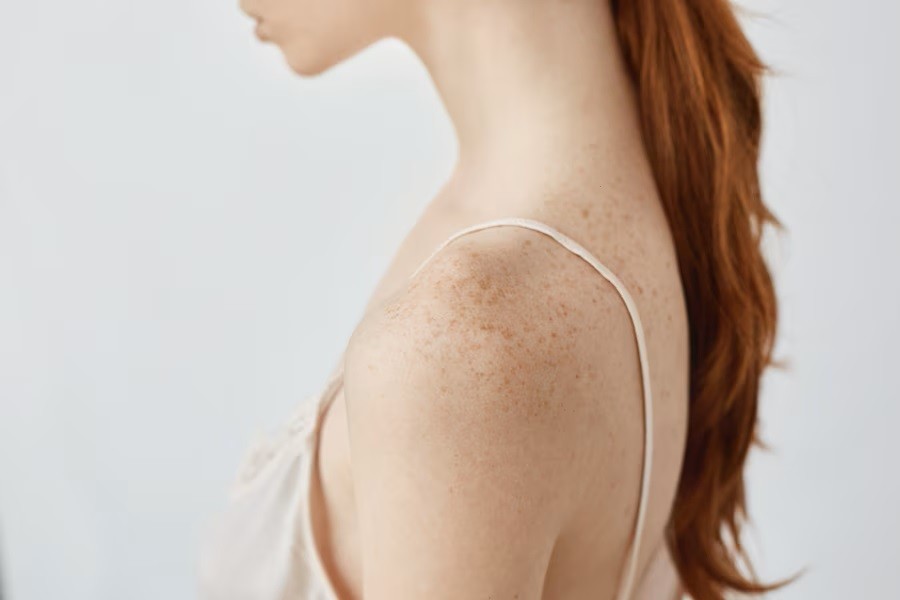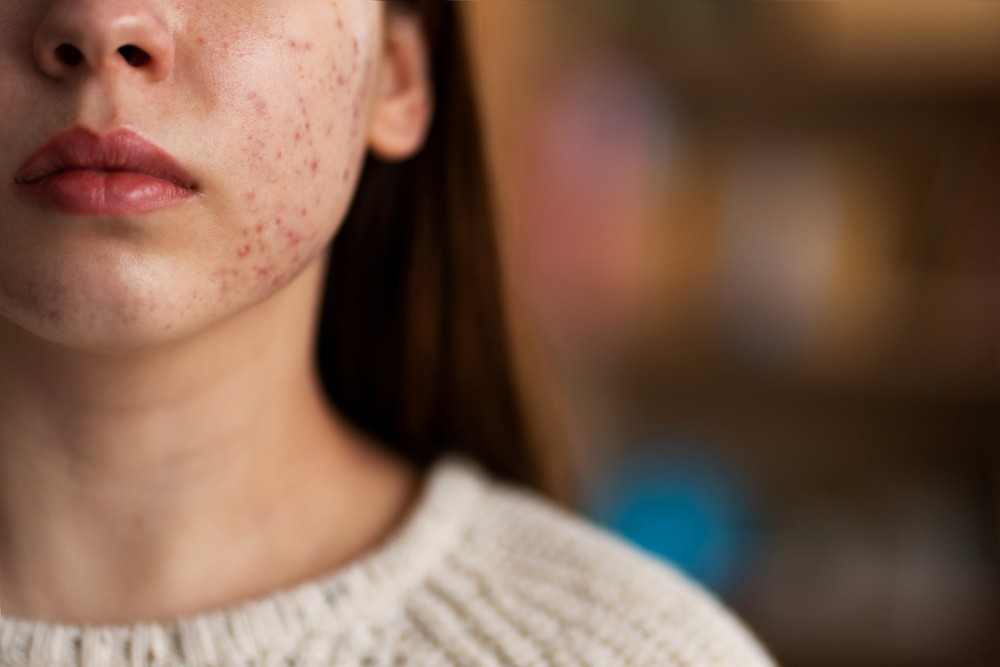Hyperpigmentation is a skin condition that leads to dark patches due to an increase in melanin production. While it can affect people of all skin types, it is more commonly seen in people with darker skin tones.
From a medical standpoint, hyperpigmentation is generally harmless, but it can have an impact on self-confidence. What are the best treatment options for this condition? Let’s take a closer look.
Causes of Hyperpigmentation
Hyperpigmentation results in uneven skin tone, with dark spots appearing in certain areas. Skin affected by hyperpigmentation is also more prone to sun damage and irritation.
Before deciding on a treatment, it is important to understand some of the common causes of hyperpigmentation, which include:
- Excessive sun exposure
- Hormonal changes, for example in ones that can occur during pregnancy or while using birth control pills
- Post-inflammatory hyperpigmentation from acne scars, eczema, or skin irritation
- Aging
- Certain medical conditions and medications
Apart from these factors, genetic factors also play a role. Individuals with family members who have hyperpigmentation are more likely to experience similar skin concerns.
Treatment Options for Hyperpigmentation
The goal of hyperpigmentation treatment is to reduce melanin production, accelerate skin cell turnover, and remove darkened skin layers. Below are some of the most recommended treatments:
Skin Lightening Creams
Skin lightening creams are common treatment options to reduce dark spots. These creams contain active ingredients that gradually help in lightening hyperpigmentation. Some of the most effective ingredients include:
- Salicylic acid
- Vitamin C
- AHA (Alpha Hydroxy Acid)
- Azelaic acid
- Kojic acid
- Retinoids
It is important to note that skin lightening creams do not work instantly. Noticeable improvements may take several weeks or even months with consistent use. For best results, follow the recommended usage guidelines and consult a dermatologist if necessary.
Chemical Peeling
Chemical peels help remove the outer layer of skin, stimulate cell regeneration, and reduce dark spots. There are three main types of chemical peels:
- Superficial peels – Use mild acids such as glycolic acid or salicylic acid, to exfoliate the top skin layer, they also help with mild hyperpigmentation.
- Medium peels – Use trichloroacetic acid (TCA) to penetrate deeper layers, improve skin tone and treat moderate hyperpigmentation.
- Deep peels – Use stronger agents like phenol, which are intended for severe hyperpigmentation cases.
Laser Treatments
Laser treatments target excess melanin in the skin without damaging surrounding tissues. Although highly effective, multiple sessions are commonly required to obtain significant results. Additionally, each laser therapy session may require a longer recovery period, so patients need to allow sufficient time for skin healing between treatments.
Microdermabrasion and Dermabrasion
Microdermabrasion is a non-invasive exfoliation procedure that removes the outermost skin layer. It is suitable for treating mild to moderate hyperpigmentation.
Dermabrasion is a more intensive procedure that penetrates deeper skin layers, making it more effective as a treatment option for severe cases of hyperpigmentation.
Intense Pulsed Light (IPL) Therapy
IPL therapy is a non-ablative laser treatment that uses light energy to stimulate collagen production and reduce pigmentation. It helps fade dark spots, evens out skin tone, and also reduces fine lines and pore size.
Since IPL is non-ablative, it does not require a long recovery time, making it a popular choice for those seeking minimal downtime.
With so many treatment options available, it can be overwhelming to determine which one is best suited for your skin. To achieve optimal results, it is recommended to consult a dermatologist for a personalized treatment plan. You can also use the Ai Care consultation service, available for download on the App Store and Play Store.
Looking for more information about health tips and tricks, first aid, and other home remedies? Click here!
- dr Hanifa Rahma
Kristeen Cherney (2023). 8 Treatment Options for Hyperpigmentation. Available from: https://www.healthline.com/health/beauty-skin-care/hyperpigmentation-treatment#laser-peel
Beth Sissons (2024). What to know about hyperpigmentation. Available from: https://www.medicalnewstoday.com/articles/323808
Beth Sissons (2021). What are the benefits of alpha hydroxy acid (AHA)?. Available from: https://www.medicalnewstoday.com/articles/alpha-hydroxy-acid
Mayo Clinic (2024). Chemical peel. Available from: https://www.mayoclinic.org/tests-procedures/chemical-peel/about/pac-20393473
Mayo Clinic (2024). Laser resurfacing. Available from: https://www.mayoclinic.org/tests-procedures/laser-resurfacing/about/pac-20385114
Lucie Wisco (2024). What Is Microdermabrasion?. Available from: https://www.healthline.com/health/microdermabrasion












